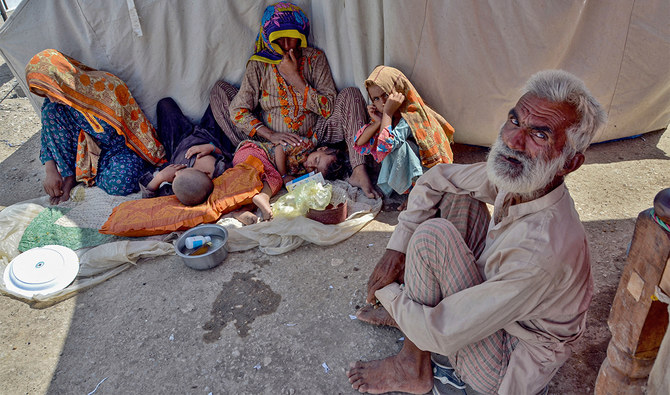ISLAMABAD: An international non-governmental organization warned on Monday older people in Pakistan’s flood-affected areas were facing a tough situation due to the breakdown of health services, adding 48% of the people interviewed said they had no access to them which was putting their lives at risk.
HelpAge International, which was founded in 1983 and is based in London, works to secure the rights of older people to help them lead dignified, secure, active and healthy lives.
It conducted a survey in Pakistan to determine the situation in flood-hit areas after nearly a third of the country was submerged in the wake of the recent monsoon floods which claimed nearly 1,700 lives and affected over 33 million people.
It noted that while there was no disaggregated data to determine how many older people had lost their lives or been injured, elderly segments of populations facing humanitarian emergencies were always more vulnerable since they were more likely to be left behind and faced information and physical access barriers in obtaining assistance.
“Almost nine out of ten (87 percent) of older people reported having a health condition, with 42 percent having more than one,” said the survey released on Monday. “The top six health conditions were joint aches and pains (31 percent), hypertension (23 percent), respiratory problems (23 percent), diabetes (18 percent), heart problems (17 percent) and gastro-intestinal issues (16 percent).”
“Despite the scale of health conditions among older people,” it added, “almost half (48 percent) of older people reported they could not access health services.”
HelpAge maintained it was imperative for humanitarian actors to take into account the specific needs of older people in the flood response to ensure they were not ignored.
The organization said 69 percent of older people interviewed for the survey informed they did not have shelter.
“This varied between locations, with those interviewed in Sindh significantly less likely to have shelter (85 percent) compared to those interviewed in Balochistan (39 percent) and Khyber Pakhtunkhwa (8 percent),” it continued. “This is unsurprising given that Sindh is the worst affected region. Over 2 million homes were affected by the floods in Pakistan, of which 88 percent were in Sindh.”
HelpAge said most people were unable to work in the flood-affected regions, adding it had seriously affected their ability to earn an income and meet food consumption and other essential needs.
The organization pointed out in a press release that only 2.3 percent of older people in Pakistan received a pension outside the public sector workforce, adding they were entirely dependent on aid or their families if they were not able to work.
“Older people play a vital role in families in Pakistan,” HelpAge said. “But older people who are barely able to meet their own basic needs, are also caring for children, with 78 percent of those interviewed caring for three or more children. Unsurprisingly, many older people are experiencing severe anxiety.”















